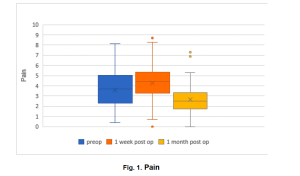Two recently-published peer-reviewed studies give more insight into the utility and effectiveness of wearables/digital health.
Key takeaway – digital health will affect care management and patient recovery in ways we are just beginning to grasp.
One study examined 864 patients’ use of Plethy’s Recupe program.
Top takeaway – The better a patient’s mood, the lower their pain level and the more they comply with their exercise programs. While correlation is not causation, the connection between mood and recovery is clear.
While this may be obvious, the real takeaway is wearable technology can be an early-warning system, giving care givers and other stakeholders (i.e. claims adjusters, care managers) real-time insight into their patients’ mood and pain level.
Instead of waiting for the practitioner’s notes, reading and interpreting those notes, and (hopefully) determining the patient’s mood and pain level, wearable tech can alert care givers and case managers to potential recovery-delaying issues and intervene before problems become entrenched.
Digital health – specifically a wearable sensor plus Recupe app – is also associated with strong adherence to a home exercise program, significant decreases in pain and improvements in range of motion. This descriptive study looked at total knee arthroplasty patients, finding “Recupe patients recovered to lower pain levels with fewer patient visits and health care utilization [than reported by other published information].”

What does this mean for you?
Taken together, these studies show digital health’s effects are broad indeed…the instant access to key data points can help stakeholders quickly respond to patients’ needs and issues.
note – Plethy is an HSA consulting client.


